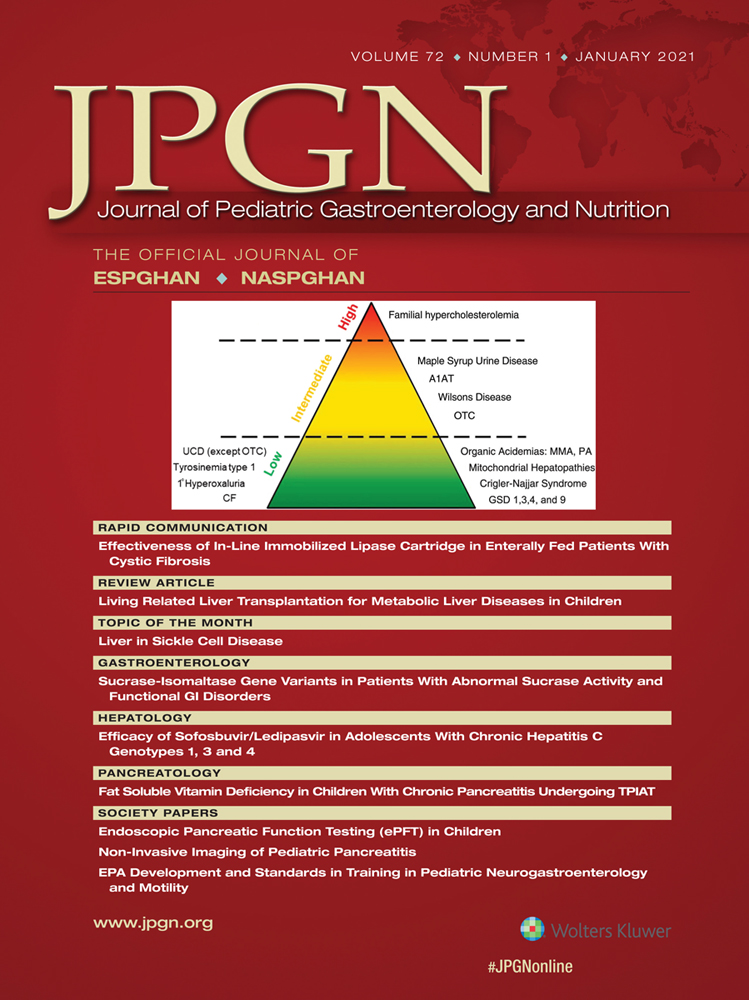Efficacy of Sofosbuvir/Ledipasvir in Adolescents With Chronic Hepatitis C Genotypes 1, 3, and 4
A Real-world Study
D.S., G.I., F.N., G.N., M.C., P.G., F.D.D., R.I., M.P., P.L.C., E.N., and L.D.A. are investigators in clinical trials sponsored by Gilead. The sponsors did not play any role in the design, methods, data collection and analyses, or in the preparation of the present article.
The treatment administered to the patients included in the present study was provided by the Italian National Health System after an agreement between the Agenzia Italiana del Farmaco (the Italian regulatory agency) and Gilead Sciences, which provided the drug to the Italian National Health System at the symbolic price of 1€.
Gilead, as drug provider, did not play any role in the design, methods, data collection, and analyses, or in the preparation of the present article.
ABSTRACT
Objectives:
Sofosbuvir/Ledipasvir (SOF/LDV) has been approved by the European Medicine Agency (EMA) for the treatment of children and adolescents (at least 3 years of age) with chronic hepatitis C (CHC) genotype 1, 3, and 4 infection. The aim of this study was to evaluate the efficacy and safety of SOF/LDV in adolescents (12 to <18 years old) with CHC in the real-world setting.
Methods:
Prospective, open-label, multicentre study involving 12 Italian centres. Patients received the fixed-dose combination of SOF/LDV (400/90 mg) once daily ± ribavirin as per EMA approval and recommendations. The key efficacy endpoint was sustained virological response 12 weeks after the end of treatment (SVR12) as per intention-to-treat analysis. Safety was assessed by adverse events and clinical/laboratory data.
Results:
Seventy-eight consecutive adolescents (median age 15.2 years, range 12–17.9; girls 53.8%) were enrolled and treated between June 2018 and December 2019. Genotype distribution was as follows: genotype 1 (82.1%), 3 (2.5%), and 4 (15.4%). Seventy-six (97.4%) patients completed treatment and follow-up. Overall, SVR12 was 98.7%. One patient was lost to follow-up after 4 weeks of treatment; 1 patient completed treatment and missed the follow-up visit. No virological breakthrough or relapse were observed. No patient experienced grade 3 to 4 adverse event or serious adverse event.
Conclusions:
The results of this real-world study confirmed the high efficacy and the optimal safety profile of SOF/LDV for treatment of CHC in adolescents.




